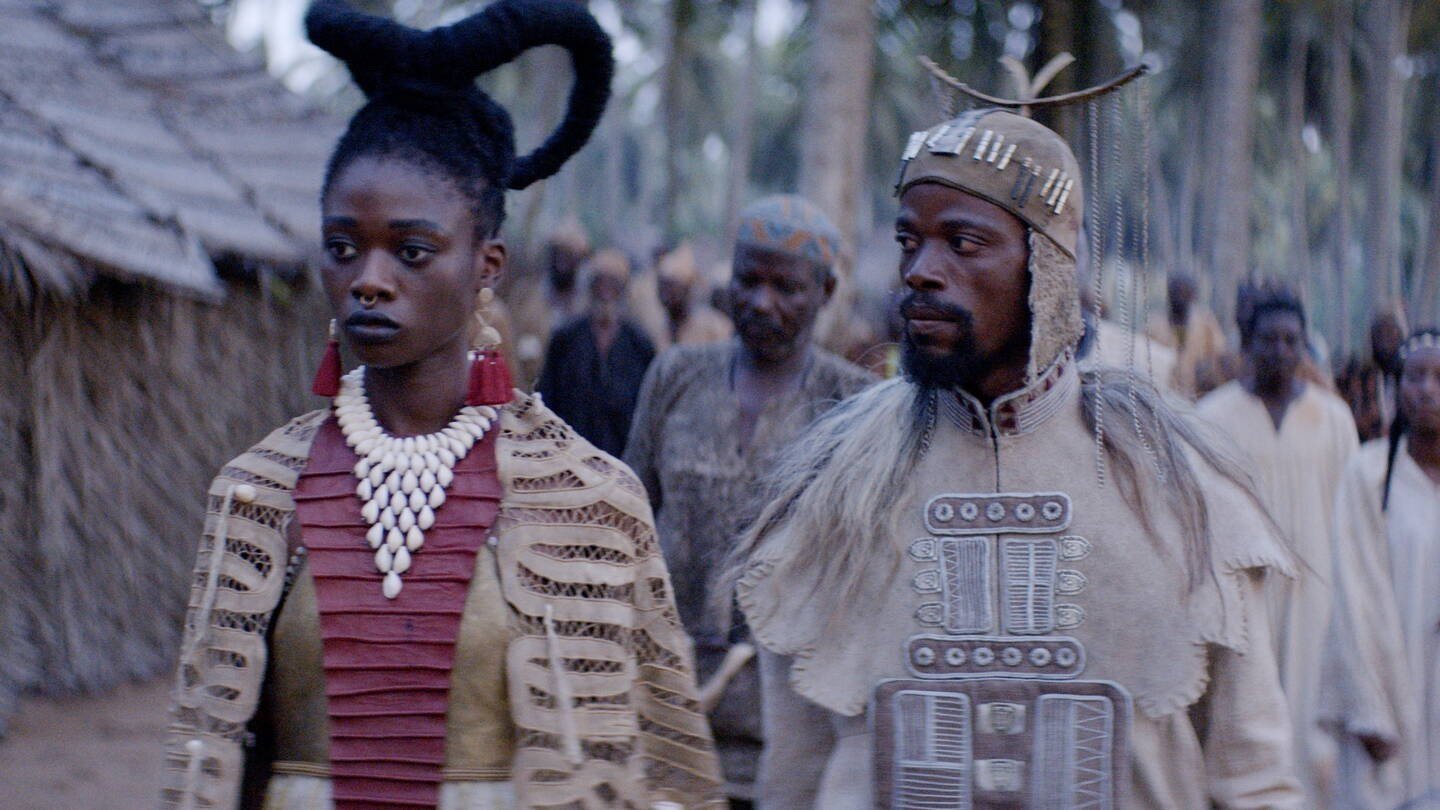Night of the Kings
A prison drama from the Ivory Coast is the most original since The Shawshank Redemption.
With this film Philippe Lacôte making only his second feature brings off a considerable feat. Night of the Kings takes place inside La Maca prison, the Abidjan jail that counts as the most notorious in the Ivory Coast. The story which it tells is confined to little more than a 24-hour period which starts with the arrival there for the first time of a young man played by the perfectly cast Koné Bakary. He has been arrested for being a street criminal belonging to a gang known as The Microbes. This is a prison in which as shown here the guards have yielded control to the prisoners who live by their own rules and customs. That involves acceptance of a leader who is nevertheless expected to kill himself if he cannot carry on. The current chief is Blackbeard (Steve Tientcheu) whose health is failing, but to create a distraction from that he appoints the newcomer as a Roman, that is to say as a storyteller. His role is to captivate the inmates on the night when the moon is red and he soon comes to realise that if his story falters or ends before dawn then by tradition he will be killed.
This fanciful set-up echoes the tales found in the Arabian Nights and the need of Scheherazade to spin a story so intriguing that she will not be put to death but left alive to tell more. But what Lacôte has done as writer and director is to create a work which is simultaneously realistic and highly stylised and that is an extraordinary achievement. In Night of the Kings we are in the contemporary world and the prison setting feels totally authentic. At the same time what goes on there breaks the bounds of realism: that element applies to the fantastical tale told by the Roman but is no less true of the lively response to his story of the prisoners for they not only listen intently but also engage in a blend of reactions both physical and vocal that belong to the sphere of choreography.
Initially the inexperienced Roman opts to tell of recent events by talking about the gang to which he had belonged and the assassination of its leader, Zama. Then, on realising that his life is at risk if the story does not continue, he declares that he has started at the end but that to complete his tale he must also go back to the beginning of Zama’s life. The essential element in any tale told by a Roman is not that it should be true to life but that it should fascinate. Consequently, the narrative now places Zama’s childhood in a bygone age when there were kings and queens ruling and battles took place.
But, if fantastical elements develop in this way, Lacôte continues throughout the first half of the film to illustrate the Roman’s tale through sequences that are always kept very brief. For that reason, the prison setting still dominates and the realistic backbone of Night of the Kings is not lost. Indeed, it is also the case that a certain authenticity lies behind the more fanciful details: the notion of the prison Roman itself carries certain echoes of West African griots for whom storytelling was an essential duty and old beliefs come into play too including the concept that humans have had a previous existence as animals. The richness and originality of Lacôte’s film, one presented with a remarkably certain hand, ensures that for more than half of its length the work is not just compelling but mesmerising. The accomplished cast undoubtedly add to this impact. Because the later scenes are not quite so effective it does mean that the film when considered as a whole is less than a masterpiece, but its strengths are such that it still counts as one of the most memorable releases of 2021.
For the record, there are in my eyes two factors that contribute to making the last third less strong. First, there’s the fact that Lacôte opts to devote longer sections to illustrating the Roman’s tale including a totally non-realistic battle sequence and that loses the balance between the two sides of the film. Secondly, a later stage of the storytelling suddenly switches to the modern world and this brings in actuality with mention of the arrest in 2011 of the former president Koudou Gbazbo Laurent. I gather that his is a complicated history involving extradition, charges of crimes against humanity and eventual acquittal, but for somebody like myself with no previous knowledge about him the film offers either too much or too little. There’s enough for the references to feel meaningful but for an outsider not enough detail emerges to clarify what Lacôte is trying to say here. Add odd touches that seem out of place (one such is Blackbeard’s belief that on dying he will take on the form of a doe, this being shown visually not as part of the Roman’s story but in the context of what happens in the prison) and a film that has been miraculously assured falls away somewhat. Even so, Night of the Kings is an exceptional work that can be appreciated on many levels including its celebration of the power of stories to feed the imagination and to sustain people in grievous times.
Original title: La Nuit des rois.
MANSEL STIMPSON
Cast: Koné Bakary, Steve Tientcheu, Digbeu Jean Cyrille, Rasmané Ouédraogo, Issaka Sawadogo, Abdoul Karim Konaté, Anzian Marcel, Laetitia Ky, Denis Lavant.
Dir Philippe Lacôte, Pro Delphine Jaquet, Yanick Létourneau, Ernest Konan and Yoro Mbaye, Screenplay Philippe Lacôte, with the collaboration of Delphine Jaquet, Ph Tobie Marier Robitaille, Art Dir Samuel Teisseire, Ed Aube Foglia, Music Olivier Alary, Costumes Hanna Sjödin.
Banshee Films/Wassakara Productions/Périphéria/Yennenga production/Canal+/Ciné+-Altitude Film Distribution.
93 mins. France/Ivory Coast/Canada/Senegal/Italy. 2020. Rel: 23 July 2021. Cert. 15.


